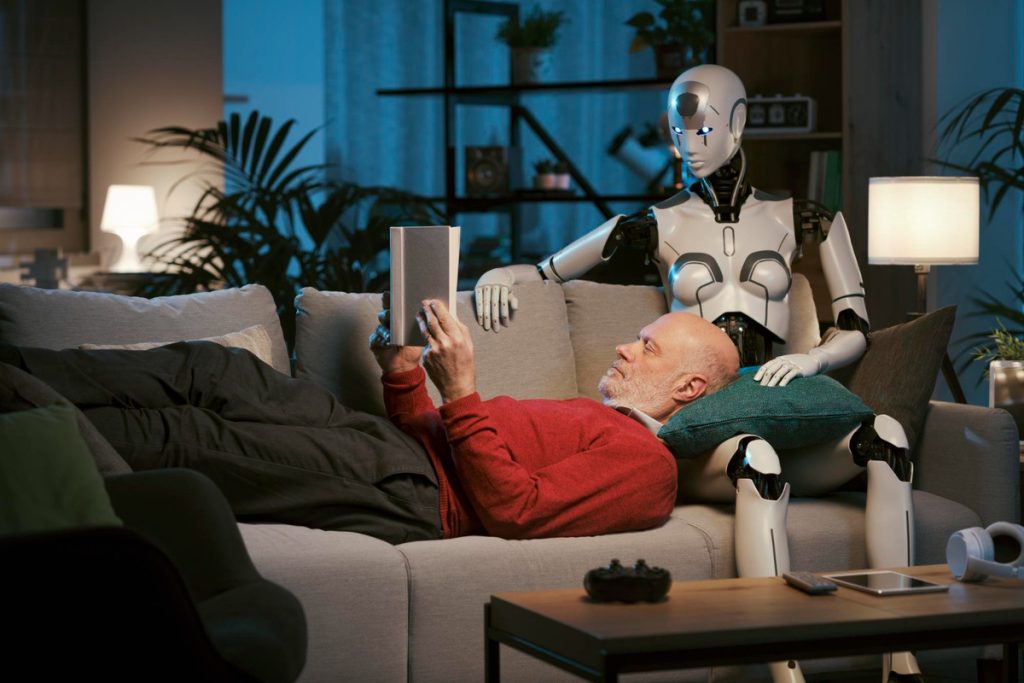The Rise of Artificial Intelligence
Artificial Intelligence (AI) has become an integral part of modern society, reshaping various industries from healthcare to finance. As AI technologies continue to evolve, they are starting to play a more prominent role in our daily lives, providing smarter solutions to everyday problems. The integration of AI into daily activities promises to bring greater convenience and efficiency, as well as improve decision-making processes in both personal and professional settings.
AI in Healthcare
One of the most promising areas for AI application is healthcare. AI-driven tools are being used to assist doctors in diagnosing diseases, managing patient care, and predicting potential health issues. Through machine learning algorithms, AI can analyze vast amounts of medical data and offer insights that human professionals may not have access to. This can lead to earlier diagnoses, more personalized treatment plans, and better patient outcomes.
AI in Transportation
AI is transforming the transportation industry as well. Self-driving cars, powered by AI, are rapidly advancing and may soon become a common mode of transport. These vehicles rely on AI to make split-second decisions, navigate traffic, and ensure safety. As autonomous vehicles become more reliable and widespread, they could reduce accidents, decrease traffic congestion, and make travel more efficient overall.
AI in the Workplace
In the workplace, AI is being used to automate repetitive tasks, improve productivity, and assist with decision-making. From customer service chatbots to AI-powered project management tools, businesses are leveraging artificial intelligence to streamline operations and reduce human error. AI’s ability to analyze data quickly and accurately makes it an invaluable asset in many professional environments.
AI and the Economy
The rise of AI is having a significant impact on the global economy. On one hand, it is creating new opportunities for growth and innovation. On the other hand, AI-driven automation is also leading to concerns about job displacement. Many workers are worried about being replaced by machines, especially in sectors such as manufacturing and retail. However, experts believe that the key to minimizing these risks lies in focusing on retraining and reskilling the workforce to adapt to new roles created by AI.
Ethical Considerations of AI
As AI continues to evolve, ethical concerns surrounding its use are becoming more important. Issues such as data privacy, surveillance, and decision-making transparency need to be addressed to ensure that AI is used responsibly. Many organizations are developing frameworks to ensure AI technologies are aligned with ethical standards and used in ways that benefit society as a whole.
AI in Everyday Consumer Products
Artificial intelligence is also making its way into everyday consumer products. Smart home devices like voice assistants, security systems, and smart appliances are all powered by AI. These products learn from user behavior and make automatic adjustments to improve comfort and convenience. With advancements in AI, it’s likely that we will see even more innovations in consumer electronics that integrate intelligent features for personalized experiences.
AI in Education
In education, AI is being used to personalize learning experiences for students. Adaptive learning systems powered by AI can assess individual student performance and adjust the curriculum to suit their specific needs. This technology has the potential to make education more accessible and efficient, providing students with a tailored learning experience that helps them succeed.
The Future of AI: What’s Next?
Looking ahead, the future of AI is filled with exciting possibilities. From enhancing everyday experiences to revolutionizing entire industries, the potential of AI is limitless. As the technology continues to advance, it will undoubtedly bring about significant changes in how we live, work, and interact with the world around us. However, it will be important to balance innovation with responsibility to ensure AI benefits society in a positive way.
Conclusion
The future of artificial intelligence holds great promise for transforming our lives in countless ways. As AI continues to advance, it will provide smarter solutions in areas such as healthcare, transportation, education, and the workplace. However, it’s important that society takes a thoughtful and ethical approach to integrating AI into everyday life to ensure that its benefits are fully realized.
Frequently Asked Questions
- What is Artificial Intelligence?
- AI refers to the simulation of human intelligence in machines that are programmed to think and learn like humans.
- How does AI work?
- AI uses algorithms, data, and machine learning to perform tasks that typically require human intelligence.
- What are the benefits of AI in healthcare?
- AI can assist doctors in diagnosing diseases and predicting potential health problems based on vast amounts of medical data.
- What impact will AI have on transportation?
- AI is revolutionizing transportation with autonomous vehicles that reduce accidents and improve traffic flow.
- Will AI replace human jobs?
- AI may automate some jobs, but it also creates new opportunities. Adaptation and retraining are key to minimizing job displacement.
- What ethical issues are associated with AI?
- Concerns include data privacy, surveillance, and ensuring transparency in AI decision-making processes.
- How is AI used in the workplace?
- AI is automating tasks, improving productivity, and assisting with decision-making across various industries.
- How does AI improve consumer products?
- AI powers smart home devices, offering users personalized experiences and improved convenience.
- Can AI be used in education?
- Yes, AI personalizes learning experiences by adapting to individual student needs, helping them succeed.
- What is the future of AI?
- The future of AI includes advancements in healthcare, transportation, and education, with a focus on ethical usage.

